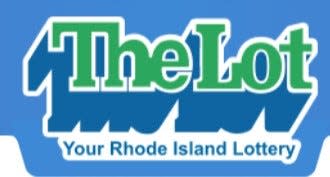What does Rhode Island do with lottery revenues? Here's how it's spent

Every time someone in the state buys a lottery ticket, a chunk of the money is given to the state.
That tax revenue was one of the main reasons Rhode Island created its lottery in the 1970s. Since its inception, the lottery has generated over $8.3 billion for the state, according to the Rhode Island Department of Finances lottery report.
As part of our What and Why RI series, a reader wrote in to ask how the state is using the money, particularly now that the Mega Millions game, which is a partnership with other states in the Multi-State Lottery Association has payouts in the billions.
Where is the money going?
Let’s break it down starting at the beginning.
When did the Rhode Island lottery start?
The Rhode Island lottery was passed by a constitutional amendment in 1973, and the first tickets were sold in 1974.
Comparatively, Rhode Island was late to the game for the lottery. Massachusetts had moved on from just having a lottery to having one with instant winners. New York had a gimmick where people could win $200 a week for life. Stories about lottery winners were in The Providence Journal all the time, just never with Rhode Island tickets.
And Rhode Islanders wanted their own piece of the action, so demand for the state to start one was high.
Who is that named after? What and Why RI answers your questions
What did Rhode Island leaders say they would do with lottery money?
Feeling like they were “getting their pocket picked” by Massachusetts, as state Sen. Raymond E. Grimes put it, legislative interest in starting a lottery was high to get a piece of the money for the state reserves. Simultaneously, there was a lot of interest in tax relief, with people frustrated with both business taxes they thought were driving people out of the state and the sales tax.
The lottery money presented a chance to do something about it.
Then Gov. Philip Noel successfully advocated for using the lottery money to offset the sales tax on trade-in vehicles. It’s why when you go to buy a new car, and trade in your old one, you don’t pay the sales tax on the value of the car you are trading in though. (Trucks though are another matter, which we’ve been asked to look into in a future What and Why RI).
Why do Rhode Islanders say bubbler? Here's what we found out
Other people such as state Rep. Hugo Ricci, who had first started advocating to start the Rhode Island lottery in 1958, had wanted the money to be used for educational purposes, such as subsidizing Brown Medical School or creating scholarships for students to go to college.
Beyond saying it would be used to offset the vehicle trade-in sales tax, there was no earmark for how the money should be spent.
What about Mega Millions?
The Mega Millions game started in Rhode Island in 2010 when lottery officials across states wanted to stop the border-hopping that left them competing for revenues. People were going from Rhode Island to Massachusetts to play Mega Millions and from Massachusetts to Rhode Island to play Powerball.
A study found that if they created games that could cross-sell across borders it would raise ticket sales 11% in Rhode Island and 15% in Massachusetts. There wasn’t a conversation about how to use the money at the time, just that the states shouldn’t miss out on it.
How much money has RI collected from the lottery?
In total, since all of the lotteries began, $8.3 billion has gone to the state’s general fund. About 8% of all the money the lottery takes in goes to the state, with the largest bulk of the money that comes in being set aside to pay out prizes.
Of that $8.3 billion, a small fraction comes from Mega Millions, which is not one of the highest-earning games in Rhode Island, trailing behind Powerball, Keno, Instant Tickets and the Numbers Game.
For example, in fiscal 2022, Mega Millions brought in $10,907,256 of revenue, but $3,852,362 of gross profit.
What's happening at the Albion Dam? What and Why RI asked around
How is lottery money used?
Ultimately, the money goes into the general fund of the state budget, where it stops being tracked.
After prize payouts and the money to operate the lottery “any remaining amounts are transferred to the general fund as unrestricted general revenue,” said Derek Gomes, the spokesperson for the Office of Management and Budget. “The State does not track where each dollar of general revenue within the general fund goes.”
The general fund can be used to fund education, public safety, environmental protection, health care, the list goes on.
It’s why the lottery often says on promotional materials that since the lottery is funding “every aspect” of life in Rhode Island, “you don’t have to play the Lottery to reap its reward.”
What and Why RI is a weekly feature by The Providence Journal to explore our readers' curiosity. If you have a question about Rhode Island, big or small, email it to klandeck@gannett.com for her to add to her growing spreadsheet.
This article originally appeared on The Providence Journal: RI Lottery raises millions for the state every year. How's it spent?
